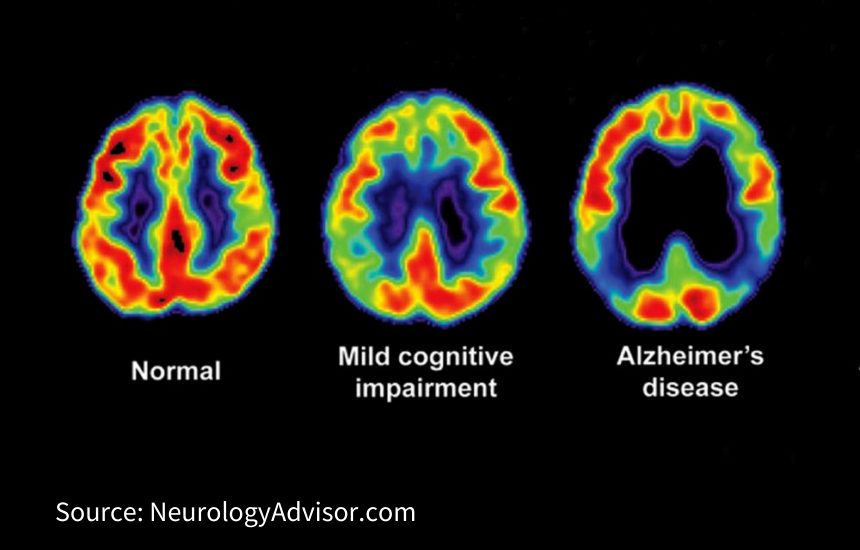The Basics of Mild Cognitive Impairment (MCI)
- Joshita Tera
- 19 hours ago
- 3 min read

Mild Cognitive Impairment, known shorthand as MCI, is an in-between state of normal cognitive ability and dementia. The condition may cause memory loss, trouble with language, and impaired judgment, but shouldn't typically interfere with day to day activities (Mayo Clinic). Individuals with MCI are at greater risk for developing Alzheimer's or other types of dementia. Roughly one to two out of 10 people aged 65 or older with this condition are estimated to develop dementia over a one-year period (Alzheimer's.gov).
Symptoms
Symptoms of MCI include trouble with cognitive abilities like memory, reasoning, attention, language, loss of interest, and more (Alzheimer's Society). Experts often classify MCI based on the cognitive abilities impactes.
Amnestic MCI: This type of MCI primarily targets your memory. An individual may start to forget important information that they typically would've recalled easily, like important events or appointments.
Nonamnestic MCI: This type of MCI targets thinking skills rather than memory. This includes making sound decisions, visual perception, language, and more (Alzheimer's Society).
Diagnosis
Mild Cognitive Impairment is a clinical diagnosis often representing an early stage of Alzheimer's or another dementia. Updated guidelines from the Alzheimer's Association and National Institute of aging recommend using biomarkers - such as abnormal PET scans or amyloid beta protein in spinal fluid - to identify changes in the brain linked to Alzheimer's.
Key components of MCI evaluation:
Detailed medical history and family history of memory issues.
Assessing daily functioning and input from family and friends.
Mental status evaluating basic cognitive abilities.
A neurological exam and mood evaluation (in order to rule out depression).
Laboratory tests, brain imaging, and, if needed, neuropsychological testing (Mayo Clinic).
Differentiation
The difference between MCI and normal age-related mental decline lies in the severity and impact the impairment has on daily life. While aging naturally leads to slower information processing, occasional forgetfulness, or delayed learning, these changes shouldn't impact daily functioning or long-term memory. MCI also involves more frequent and noticeable memory lapses, such as forgetting important information, conversations, appointments, etc. In summary, MCI includes a more pronounces cognitive decline.
Dementia, on the other hand, involves a more severe decline in cognitive function that interferes with daily living. Dementia affects multiple areas, including memory, reasoning, language, coordination, mood, behavior, and more, while MCI doesn't typically disrupt independence or cause personality changes. Not everyone with MCI develops dementia, some remain stable or even regain normal cognitive abilities, while others progress to neurodegenerative diseases like Alzheimer's or Parkinson's disease. MCI can be an early stage of such conditions, but its progression differs by individual. (Cleveland Clinic)
Prevention and Cures
Treatment for MCI depends on its underlying cause. While MCI caused by neurodegenerative diseases like Alzheimer's cannot be reversed, cases stemming from causes liek infections, sleep issues, mood disorders, or medication may be treatable with a plan. Currently, the U.S FDA has not approved of any medications specifically for MCI, but often non-medicated strategies to improve cognition are recommended.
Preventing MCI isn't always possible, but certain lifestyle changes can help maintain brain health and reduce risk.
This includes:
Avoiding Smoking/Alcohol
Eating a balanced diet and exercising regularly.
Managing Blood pressure, cholesterol, blood sugar levels, reducing stress, and prioritizing quality sleep.
Engaging in mentally stimulating activities, learning new skills, and staying socially active.
Regularly visiting a health care provider to manage chronic conditions (Cleveland Clinic).
While not everyone with MCI progresses to dementia, understanding its symptoms, diagnosis, and differentiation from normal aging or dementia is crucial for early intervention. By adopting brain healthy lifestyle habits, individuals can potentially reduce their risk and manage the condition more effectively. Though MCI involves many challenges, proactive steps and medical guidance can help preserve cognitive health and quality of life.
References:

